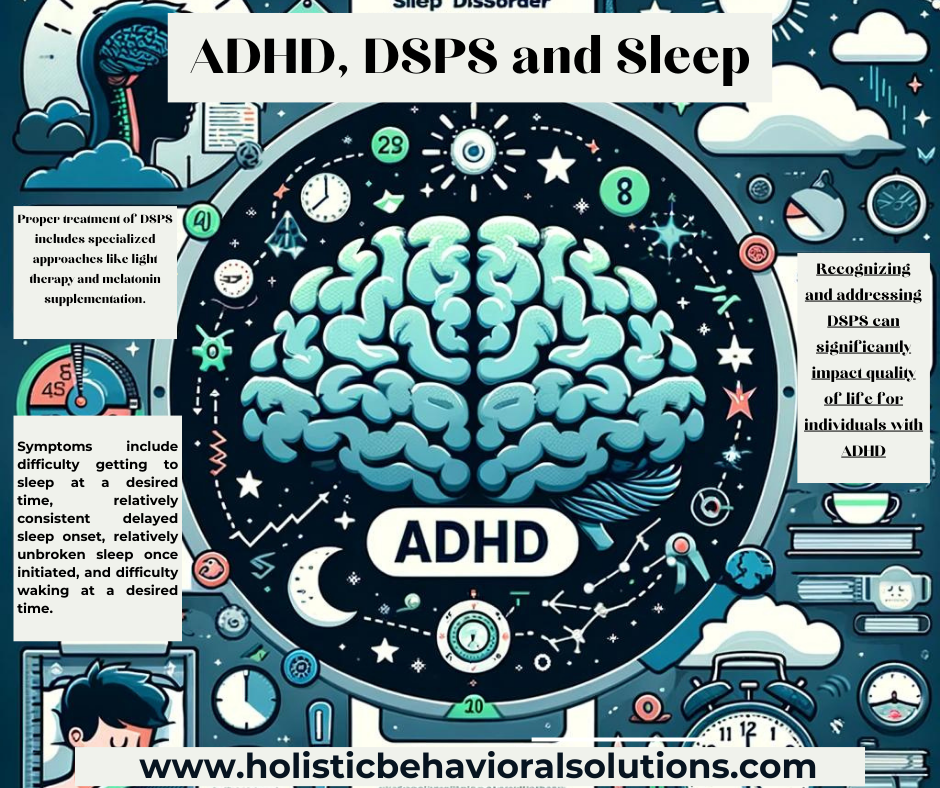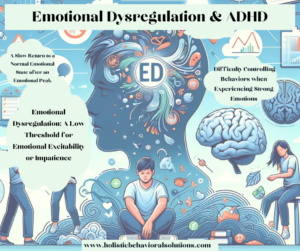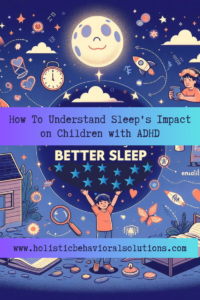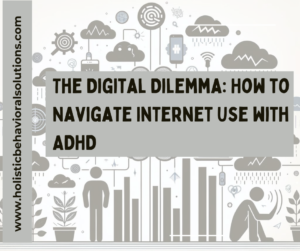
ADHD and Sleep: Attention-Deficit/Hyperactivity Disorder (ADHD) is a complex neurodevelopmental condition that affects millions worldwide, manifesting in various symptoms like inattention, hyperactivity, and impulsiveness. However, an often overlooked aspect of ADHD is its strong correlation with sleep disorders, particularly the Delayed Sleep Phase Disorder (DSPD). DSPD is a circadian rhythm sleep-wake disorder that significantly affects the sleep patterns of 73-78% of individuals with ADHD. This connection between ADHD and sleep disorders opens up a new realm of understanding and managing ADHD.
The ADHD and Sleep Disorder Conundrum
Sleep disorders are not just a side effect of ADHD; they are intricately linked with the condition in a complex relationship where ADHD can be both a cause and a consequence of sleep disturbances. This interconnection might stem from shared etiological and genetic factors that influence both ADHD and sleep patterns. The prevalence of sleep disorders in individuals with ADHD spans a wide range, affecting both children and adults, and includes more than just DSPD, encompassing a variety of sleep-related issues.
ADHD and Sleep: Circadian Rhythms and ADHD
Much of the success in ADHD treatment surrounds building structure and consistency in our lives. The circadian rhythm, our internal clock that regulates the sleep-wake cycle, plays a pivotal role in the relationship between sleep disorders and ADHD. Disruptions in our circadian rhythms, such as in DSPD, lead to significant sleep delays, affecting the overall quality and quantity of sleep. This disturbance in sleep patterns can exacerbate ADHD symptoms, creating a vicious cycle that impacts daily functioning.
Pathways Linking ADHD Symptoms to Delayed Sleep
The pathways explaining the link between ADHD symptoms and delayed sleep are multifaceted, involving genetics, behavioral aspects, daylight exposure, and even the functioning of the eye. These elements collectively influence the circadian rhythm and, subsequently, the occurrence of sleep disorders in individuals with ADHD.
Treatment Options: Beyond Just Managing Symptoms
Addressing sleep disorders in individuals with ADHD involves a comprehensive approach that not only focuses on symptom management but also aims at improving sleep quality and quantity and resetting the sleep phase. Strategies such as enhancing sleep hygiene, employing chronotherapy, treating specific sleep disorders, and utilizing interventions like sensorimotor rhythm neurofeedback are pivotal in managing this dual challenge. These treatment options aim at strengthening neuronal networks involved in sleep regulation, thereby offering a holistic approach to managing ADHD and associated sleep disorders.
Rethinking ADHD: A New Perspective
Given the significant overlap between ADHD and sleep disorders, there’s a growing discourse on whether ADHD needs to be redefined. A substantial subgroup of individuals with ADHD, whose symptoms are predominantly influenced by chronic sleep disorders, particularly those with a delayed circadian rhythm, necessitates a reevaluation of conventional ADHD treatment paradigms. Treating the underlying sleep disorder alongside ADHD symptoms could offer a more effective management strategy, highlighting the need for a novel perspective on ADHD that acknowledges the critical role of sleep disorders.
Conclusion
The intricate relationship between ADHD and sleep disorders, especially DSPD, necessitates a paradigm shift in how ADHD is perceived and managed. Recognizing the interplay between circadian rhythms, sleep disturbances, and ADHD opens up new avenues for treatment strategies that address the root causes rather than just the symptoms. By integrating sleep disorder management into ADHD treatment plans, we can offer a more holistic and effective approach to improving the lives of those affected by ADHD, ultimately leading to better overall outcomes. This overview underscores the importance of acknowledging and addressing sleep disorders within the ADHD spectrum, paving the way for a more nuanced understanding and management of this complex condition.
ADHD and Sleep: The Holistic Store
While we are thinking that through, boost your connection from the inside out with our wellness supplements and supplies. Check out our store for products that help you feel your best, making it easier to open up and connect on a deeper level.


